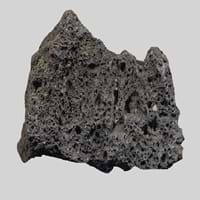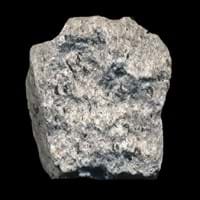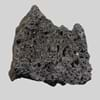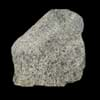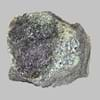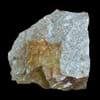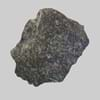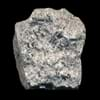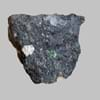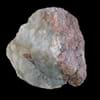Definition
Scoria is a dark-colored extrusive igneous rock with abundant round bubble-like cavities
Porphyry is a reddish-brown to purple igneous rock containing large phenocrysts of various minerals embedded in a fine-grained matrix
Discoverer
Unknown
Unknown
Etymology
From late Middle English (denoting slag from molten metal), from Greek skōria refuse, from skōr dung
From Old French porfire, from Italian porfiro and in some cases directly from Latin porphyrites
Class
Igneous Rocks
Igneous Rocks
Sub-Class
Durable Rock, Medium Hardness Rock
Durable Rock, Hard Rock
Other Categories
Fine Grained Rock, Opaque Rock
Fine Grained Rock, Opaque Rock
Texture
Vesicular
Porphyritic
Color
Black, Brown, Dark Grey to Black, Red
Black, Brown, Colourless, Green, Grey, Red, Rust, White
Durability
Durable
Durable
Scratch Resistant
Yes
Yes
Appearance
Glassy and Vesicular
Dull
Interior Uses
Decorative Aggregates, Interior Decoration
Decorative Aggregates, Interior Decoration
Exterior Uses
Garden Decoration, Paving Stone
Garden Decoration, Paving Stone
Other Architectural Uses
Curbing
Curbing
Construction Industry
Cement Manufacture, Construction Aggregate, for Road Aggregate, In landscaping and drainage works
Construction Aggregate
Medical Industry
Not Yet Used
Not Yet Used
Antiquity Uses
Artifacts, Monuments, Sculpture
Artifacts, Monuments, Sculpture
Commercial Uses
As a traction material on snow-covered roads, Creating Artwork, High-temperature insulation, In gas barbecue grills
Creating Artwork, Gemstone, Jewelry
Types
Not Available
Rhomb Porphyry
Features
Available in Lots of Colors and Patterns, Generally rough to touch, Surfaces are often shiny
Generally rough to touch, Is one of the oldest rock, Surfaces are often shiny
Archaeological Significance
Famous Monuments
Data Not Available
Data Not Available
Famous Sculptures
Data Not Available
Data Not Available
Pictographs
Used
Not Used
Petroglyphs
Used
Not Used
Formation
Scoria forms when magma containing huge amount of dissolved gas flows from a volcano during an eruption.
Porphyry is formed in two stages: the magma cools slowly deep within the crust or the magma is cools rapidly as it erupts from a volcano, creating small grains that are usually invisible to naked eye.
Mineral Content
Apatite, Biotite, Calcite, Feldspar, Hematite, Hornblade, Ilmenite, Magnetite, Olivine, Pyroxene, Quartz, Silica
Biotite, Chert, Feldspar, Garnet, Graphite, Quartz, Silica
Compound Content
Ca, NaCl
Aluminium Oxide, CaO, Iron(III) Oxide, Potassium Oxide, MgO, Sodium Oxide, Silicon Dioxide, Titanium Dioxide
Types of Metamorphism
Burial Metamorphism, Cataclastic Metamorphism, Contact Metamorphism
Burial Metamorphism, Cataclastic Metamorphism, Contact Metamorphism, Hydrothermal Metamorphism, Impact Metamorphism, Regional Metamorphism
Types of Weathering
Biological Weathering, Chemical Weathering, Mechanical Weathering
Biological Weathering, Chemical Weathering, Not Registered
Types of Erosion
Chemical Erosion, Coastal Erosion, Glacier Erosion
Chemical Erosion, Coastal Erosion, Glacier Erosion
Grain Size
Fine Grained
Fine Grained
Fracture
Conchoidal
Irregular
Porosity
Highly Porous
Less Porous
Luster
Subvitreous to Dull
Dull
Cleavage
Perfect
Imperfect
Specific Gravity
Not Available
2.5-4
Transparency
Opaque
Translucent to Opaque
Density
Not Available
2.5-2.52 g/cm3
Resistance
Heat Resistant, Impact Resistant, Pressure Resistant, Wear Resistant
Heat Resistant, Impact Resistant
Deposits in Eastern Continents
Asia
Afghanistan, Indonesia, Japan, Russia
China, Kazakhstan, South Korea, Thailand, Turkey, Vietnam
Africa
Ethiopia, Kenya, Tanzania
Egypt, Ethiopia, Ghana, South Africa
Europe
Greece, Hungary, Iceland, Italy, Turkey
Finland, France, Germany, Great Britain, Hungary, Iceland, Ireland, Italy, Netherlands, Norway, Romania, Sweden, Switzerland
Others
Not Yet Found
Greenland
Deposits in Western Continents
North America
Bahamas, Barbados, Canada, Costa Rica, Cuba, Jamaica, Mexico, USA
Canada, Cuba, Jamaica, USA
South America
Argentina, Chile, Ecuador, Peru
Bolivia, Brazil, Colombia, Ecuador, Paraguay
Deposits in Oceania Continent
Australia
New Zealand, Western Australia
New South Wales, New Zealand, Western Australia
